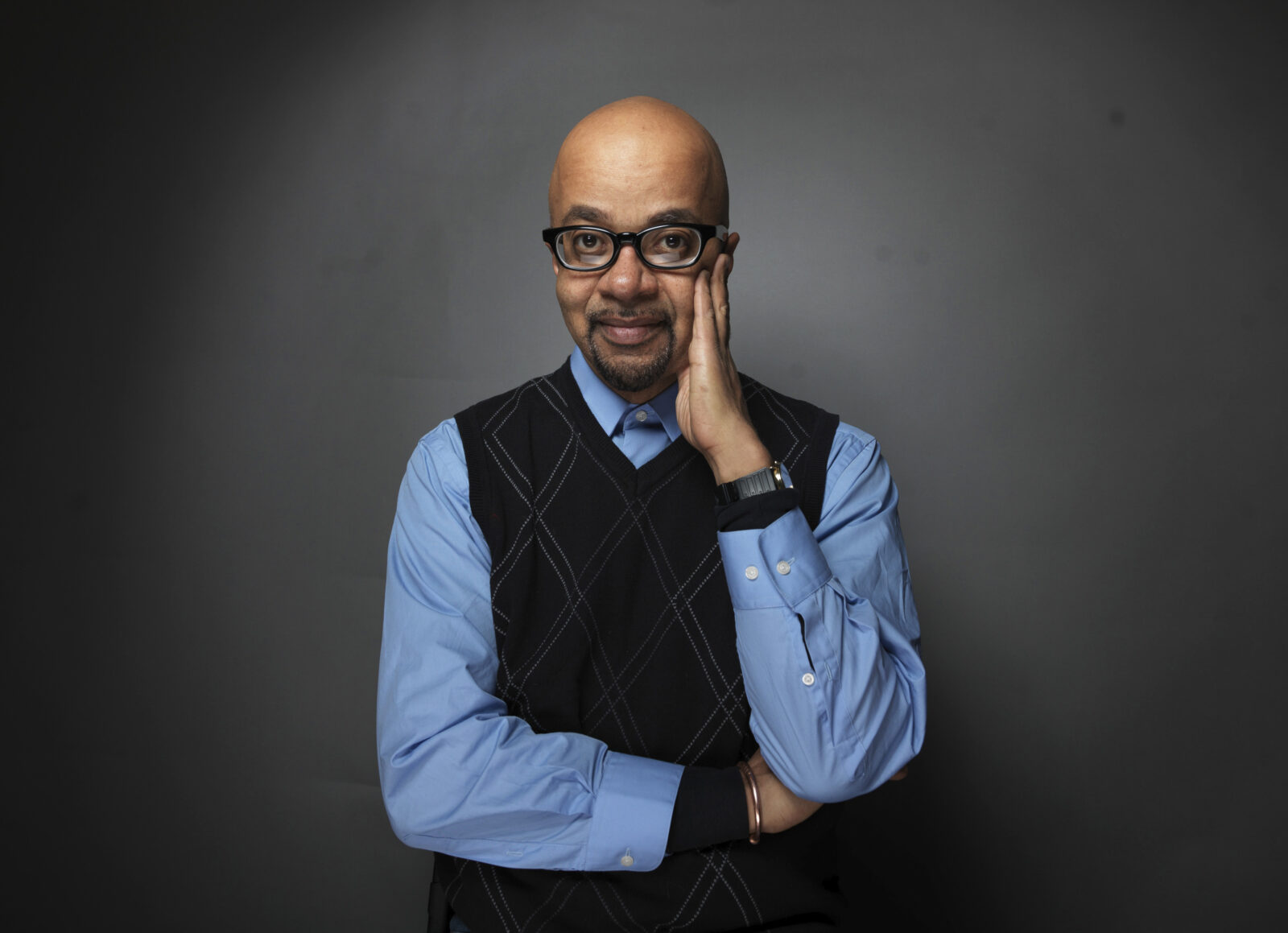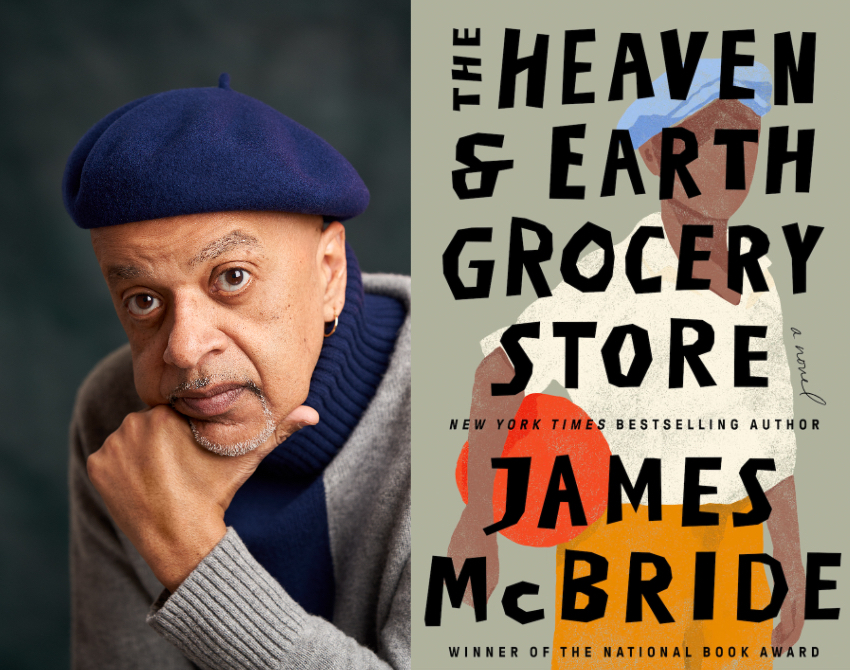
AP Photo/Victoria Will, File
‘I want people to get along’: James McBride on the Black-Jewish neighborhood in his new novel
The National Book Award-winner’s latest book, The Heaven & Earth Grocery Store, explores life in a small Pennsylvania town decades before an unsolved murder is discovered
Chicken Hill is not a place you want to live. At least, not judging by the first chapter in a new novel by National Book Award-winner James McBride.
The mostly fictional Pottstown, Pa., neighborhood, now extinct, was “wretched” and “ramshackle” by the 1970s, he writes at the outset of the book, which sets up a mysterious murder — and then turns back in time, to the 1920s and 1930s, to work up to the 1972 discovery of the body.
But the world that McBride creates in The Heaven & Earth Grocery Store is a far cry from the exceedingly negative adjectives ascribed to Chicken Hill at the start of the book. His Chicken Hill is a vibrant if slightly rundown neighborhood on the margins of Pottstown, a place where the town’s immigrant Jewish community and its Black residents intersect in ways small and large.
“I just wrote the book because I want people to get along,” McBride, who is Black, told Jewish Insider in a recent interview ahead of the book’s release on Tuesday. “I want people to be happy. I want people to see how we struggle in America as immigrants and how Jewish and Black people manage to get along in this small town.”
McBride, 65, is no Pollyanna — his book presents the racial complexities of Jews and Blacks trying to get along and to get ahead, two goals that often come into conflict throughout the story. A Jewish couple at the center of the book, Moshe and Chana Ludlow, grapple with whether to leave the neighborhood for a more upwardly mobile area where many other Jews have moved. But the Ludlows’ fate becomes linked with that of their Black neighbors when they agree to hide a deaf Black boy, at risk of institutionalization, in the theater Moshe owns.
In McBride’s initial plan for the novel, he intended to write a story based on a camp he worked at in Philadelphia for kids with disabilities. The camp was run by a Romanian Jewish theater owner.
“I wanted to sort of write something that speaks to the whole business of equality,” McBride said. “It’s hard to find the magical stuff that makes stories go. This isn’t a nonfiction book. This is a book about characters who do things that are courageous, and that are funny.”
McBride’s past novels also explore questions of racial identity set in very particular historical moments. In each of them, the characters he creates — funny and infuriating — are the engines of the book. (His National Book Award winner, 2013’s The Good Lord Bird, tells a fictionalized story of an enslaved man uniting with abolitionist John Brown.)
The Heaven and Earth Grocery Store is not the first time McBride has turned his writer’s eye toward the Jewish community: His first book, his 1995 bestselling memoir The Color of Water, explored his childhood in New York City being raised by a single mother, an immigrant from Poland who had grown up in Orthodox Jewish home in Suffolk, Va.

“It was a part of her history, and so I’ve always been kind of intrigued by it,” McBride said of his mother’s Jewish upbringing. (She converted to Christianity upon marrying her husband, McBride’s father, who died before he was born.) “I did a lot of research into her life in the South, knowing how difficult life was for Jews of that period.”
The New York of his childhood, in the 1960s, “had just a greater Jewish influence” than in the New York of today, said McBride. “Because of my teachers, my life, my mother, subway motormen and people who worked in toll booths and butcher shops and candy stores, there were a lot of Jews in New York that were present. That sense of, I don’t know, practical kindness, was part of my growing up years.”
He recalled his mother employing the occasional Yiddish term or phrase in places like Manhattan’s Lower East Side, but the Yiddishisms that appear throughout his book were the result of studying the language in phrase books and dictionaries.
“It’s too bad. It’s a disappearing language. It’s a very funny language,” McBride said.
His research for the the new novel involved mainly visits to the real-life Pottstown, in Pennsylvania’s Montgomery County, and reading firsthand accounts of Jews living in America in the 1920s — and memories of conversations with his mother, who had experienced the difficulty of being a Jewish immigrant at a time of rising xenophobia in America.
“Nobody wanted Jews in the neighborhood, but I recall my mother talking about growing up in the South, the antisemitism was very present, and something that was unforgettable,” McBride said. “Later when she became the mother of Black children, she was very practical and very smart about how to maneuver through society.”
The Heaven and Earth Grocery Store will arrive in an America that continues to grapple with questions about race and identity and belonging. McBride doesn’t view it as a political screed, but he understands the context in which it will land.
“For me, they’re not modern questions. Racism and antisemitism never went away,” McBride said. “It must be awfully disappointing to be a person who’s 80 or 90 years old, who gave your life to educating kids, treating people well, treating people as a doctor or a nurse or a social studies teacher, to see what is happening now.”
“I didn’t write this book,” he added, “to address those issues. I just wrote this book to show people that we have managed to do well in this country because it’s a nation of immigrants.”
McBride started his writing career as a journalist, but he quickly grew tired of what he described as “cynicism” that was “eating into the creativity and the souls of journalists who were a lot older than me,” he recalled.
“Fiction allows your dreams to come true,” he noted. “I’m grateful that I’ve had the opportunity to meet these people in my imagination.”


